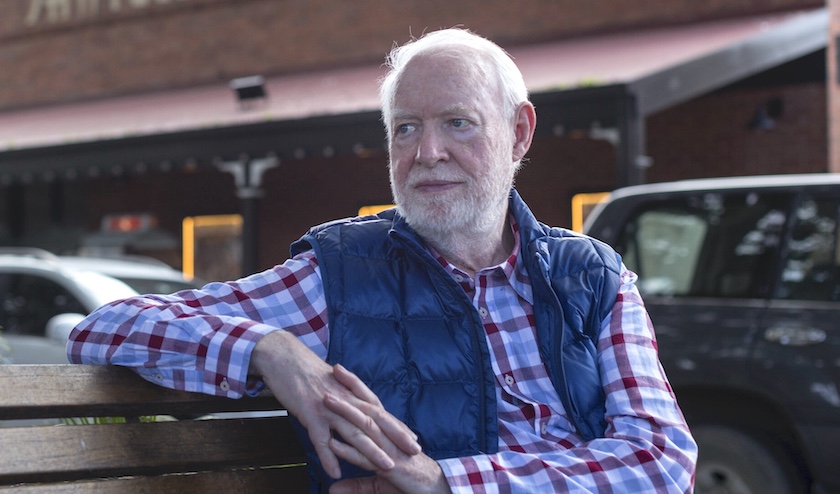British and Australian film critic, historian, journalist, interviewer, educator and television personality David Stratton shaped the way an Australian generation experienced film at the age of 85.
“David’s passion for film, his commitment to Australian film and his generosity touched countless lives,” the family said in a statement, as reported by ABC News. “He was worshipped as a husband, father, great grandfather and great grandfather and praised his friends. David’s family would like to express his sincere gratitude for his overwhelming support from his friends, colleagues and the public recently and throughout his life.”
The Stratton family encouraged the public to “celebrate David’s incredible life and legacy by watching their favourite film, or David’s favorite film, “Singin’in the Rain.”
From the wartime England to the heart of Australian cinema
Born in 1939 at Trowbridge, England, Stratton’s love for the film began as a young child living with her grandmother during World War II. She takes him to the cinema, which frequently becomes part of his earliest memories. “I went to movies from around 2 or 3 until I was about 6 to 6 years old, and all of a sudden there were no movies in my life. That was quite shocking,” he recalled in 2019.
In 1963, Stratton arrived in Australia under a “10-pound” transition plan and quickly became involved in the local film society movement. Just three years later, he was appointed director of the Sydney Film Festival. This was a position he held until 1983, and won the role after fighting the censorship of the film. During his tenure, screenings of Soviet films at the festival, as well as a visit to Russia in the late 1960s, he was placed under surveillance by Australian security intelligence organizations (information not revealed until 2014).
Australian screen fixture
Stratton joined SBS in 1980 as a film consultant, introducing SBS Cinema Classics and Movie Of the Week before stepping into the camera on October 30, 1986, and co-hosted a film show with Margaret Pomeranz, who produced the program. “Margaret and David” became one of the nation’s most famous TV combinations, and their witty banter and clash preferences have become a weekly ritual for countless film enthusiasts.
In 2004, the pair moved to ABC TV in films and ran for another decade before retiring together at the end of 2014.
In this author’s personal note, these shows were mandatory viewings. I couldn’t wait for each new episode. I stared at Stratton’s review in Australia and wanted to see how he matched (or didn’t) with his own. His measured and thoughtful approach helped shape my viewing habits as well as my understanding of film as an art form.
In 2017, Stratton became the subject of the documentary David Stratton: Film Life, written and directed by Sally Aitken. The film pays homage to its star-studded lineup, including Nicole Kidman, Russell Crowe, George Miller and Gillian Armstrong.
In testimony to their lasting influence, Stratton and Pomerantz were led to the Australian film Walk of Fame on Sunday, June 1, 2025, becoming the first duo and first non-actors in history. The special event was announced by Randwick City Council and Ritz Films.
Critics, historians, educators
Beyond television, Stratton provided reviews to Variety from 1984 and TV Week, and published a video review for Palace Nova Cinemas. He was also a dedicated educator, speaking on film history at the University of Sydney’s Center for Continuing Education from the late 1980s to December 2023, covering around 840 films and exhibiting over 7,500 clips. Many of his students re-registered each year, a testament to his fascinating style and knowledge of the encyclopedia.
Not only did his published works include the film’s final New Wave, Avocado Farm and Australia, but his autobiography of me peeing at Fellini is also drunk and untimely – trying to shake Federico Fellini’s hands in the bathroom. By 2024, Stratton had written a total of six books.
Global recognition and enduring legacy
Stratton served in the Ju Court at major international festivals, including Berlin, Montreal and Venice, and has hosted the Fipresci Ju Court at Cannes twice. His advocacy for Australian cinema and his knowledge of international cinema have brought him global respect along with honors such as the French Croix de Commandeur, the Lifetime Achievement Award of the Australian Institute of Film Studies, the 100th anniversary medal and the appointment as an Australian Order Member.
In 2012 he took part in the Sight & Sound Critics poll. There, 10 favorite films of the time are Charulata, Citizen Kane, The Conversation, Uzak (far), Distant Voice, and still live.
Even if later life health issues affected his vision and mobility, he never lost his dedication to watching at least one film a day.
Talking to the Guardian about his decision to retire in 2024, Stratton said:
Details of the opening ceremony will be announced in the coming weeks. In the meantime, his family’s suggestions feel like a perfect compliment. Remember the man who puts his favourite movies on top or sings in the rain, dedicated his life to the joys, crafts and conversations of films.

